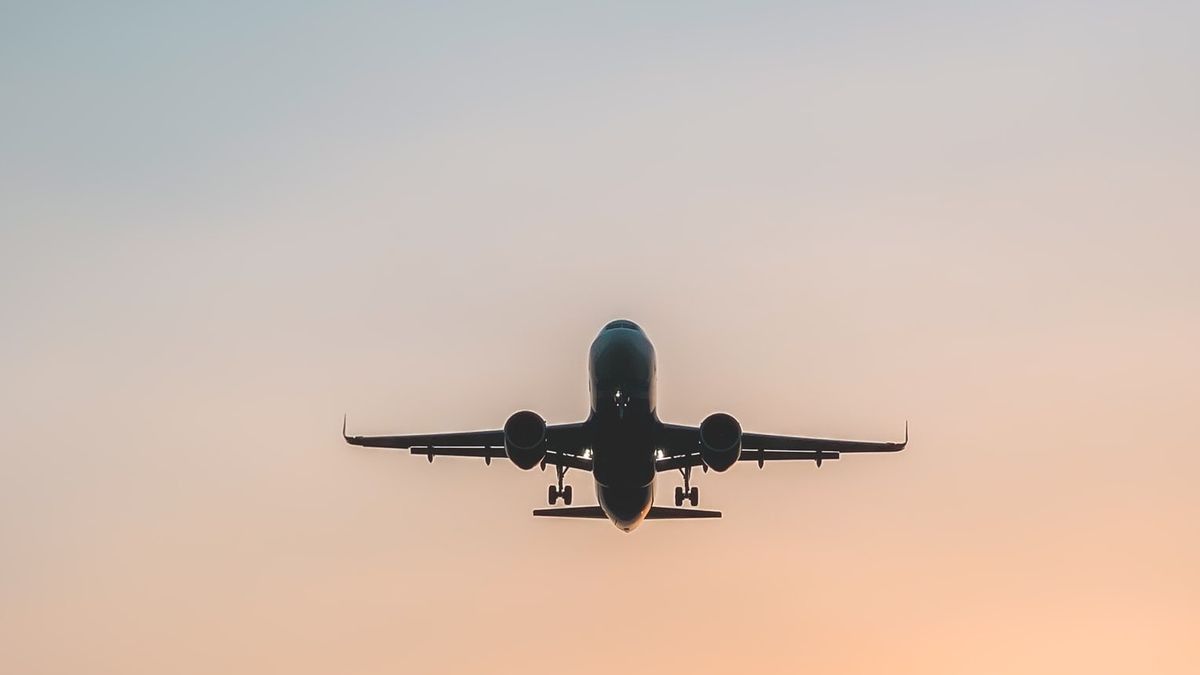YOGYAKARTA - When traveling by plane in the morning or early morning, maybe the first thing on your mind is that you can sleep well soon. Especially if your trip is long enough and there is another agenda waiting when you land at your destination. However, sleeping when the plane takes off is not very recommended. Likewise when the plane is about to land (landing). So what is the reason for not being allowed to sleep when the plane is taken off and landing?
Reporting from the Travel+Leisure site, there are two reasons why passengers are advised not to sleep when the planes take off and landing (landing). The first reason is to prevent barotraumatics. Barotraumatics is an injury to the ear due to a barrier in the eustachius channel (channels at the back of the middle ear and leading to the throat).
The barrier arises due to differences in air pressure between the room in the aircraft cabin and the inner ear when the plane takes off and lands. Your earbutt will automatically adapt to the difference in air pressure. Not infrequently this results in loss of hearing or hearing that has been irradiated for a while.
Some passengers will also feel pain. However, there is no need to worry, how to overcome it is quite easy, namely by trying to evaporate and swallow or chew food. This action can help open the eustachius channel and the percentage of success is quite high for adults. In children and babies, it can be fitted with earmuffs, so that both ears don't feel pain.
You can only do this solution in a well-maintained condition or delay sleep. And Bubb, a professor at the University of Nevada, Las Vegas, who is also a former pilot, explains that it is highly inappropriate to sleep when the plane takes off.
"While asleep, we don't swallow much fluid to equalize the pressure on our ears," he said as quoted by Travel+Leisure.
SEE ALSO:
The second reason why passengers are not advised to sleep during takeoff and landing is for the safety of evacuations when an emergency occurs. Take off and land, including the important phase in each flight. Aircraft accidents have the potential to occur in these two phases.
"Another reason (not sleeping while taking off and landing) is that you are really aware of what happens in the event of an emergency, as well as passengers and crew must evacuate from the plane," said Bubb.
If you fall asleep during an emergency, you may need time to adapt and react quickly. This will certainly be a problem and slow down the evacuation process. If you are really tired and sleepy, wait a while until the plane takes off and the seat belt sign is turned off. After that, you can just set your rest time.
Demikianlah review tentang alasan tidak boleh tidur saat pesawat take off dan landing. Kunjungi VOI.id untuk mendapatkan informasi menarik lainnya.
The English, Chinese, Japanese, Arabic, and French versions are automatically generated by the AI. So there may still be inaccuracies in translating, please always see Indonesian as our main language. (system supported by DigitalSiber.id)


















